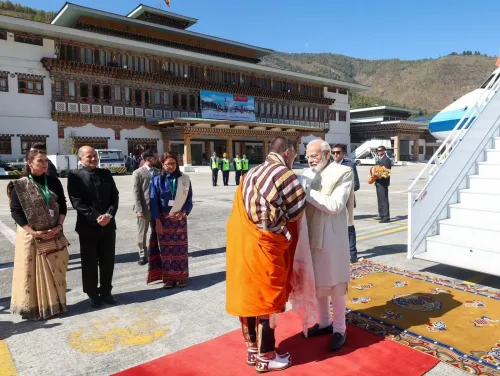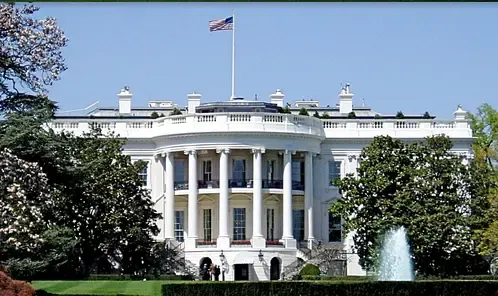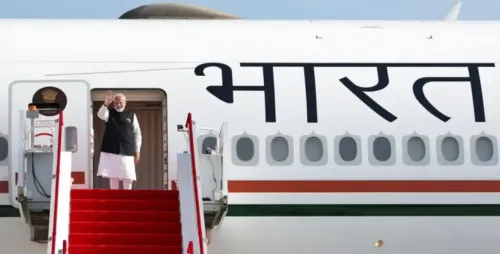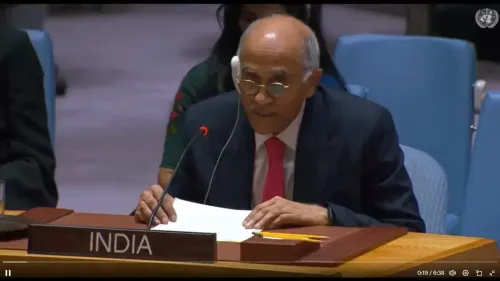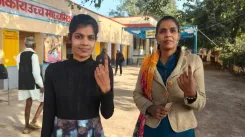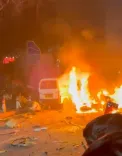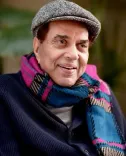Why is the UN Human Rights Chief Concerned About Bangladesh's Political Party Ban?
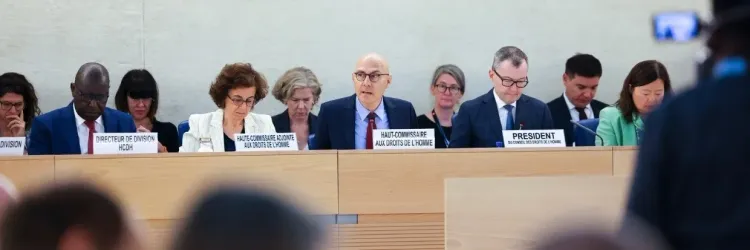
Synopsis
Key Takeaways
- UN raises alarms over Bangladesh's political party ban.
- Legislative changes could hinder democratic processes.
- Human Rights Watch condemns the Yunus regime's actions.
- The Awami League faces significant restrictions on activities.
- Dialogue and reforms are crucial for fair elections.
Geneva, June 17 (NationPress) Volker Turk, the United Nations High Commissioner for Human Rights, has voiced serious concerns regarding the recent changes in legislation by the Muhammad Yunus-led interim government in Bangladesh, which now permits the prohibition of political parties, organizations, and their associated activities.
During his address at the 59th session of the Human Rights Council in Geneva on Monday (local time), he urged the interim government to undertake significant reforms aimed at fostering an environment conducive to free and inclusive elections.
"I am troubled by the recent legislative modifications that facilitate the banning of political parties and organizations, along with all related activities. This action unduly limits the freedoms of association, expression, and assembly," Turk stated.
He expressed optimism that the interim government and political parties in Bangladesh are progressing through dialogue, urging meaningful reforms to promote an environment for free and inclusive elections.
Previously, the Office of the United Nations High Commissioner for Human Rights (OHCHR) released a report that suggested improvements in areas such as accountability and justice, police and security, civic space, political systems, and economic governance.
The report indicated that banning political parties would obstruct a genuine transition to a multiparty democracy and disenfranchise a large segment of the Bangladeshi electorate.
Recently, Human Rights Watch, a US-based advocacy organization, condemned the Yunus administration for trying to suppress the rights of supporters of former Prime Minister Sheikh Hasina and the Awami League party.
Human Rights Watch emphasized in a statement that the interim government's recent legislative measures threaten to undermine fundamental freedoms.
On May 12, the interim government imposed a 'temporary' ban on the Awami League using newly acquired powers under a stringent amendment to the Anti-Terrorism Act. This ban encompasses actions such as meetings, publications, and online expressions supporting the party, according to Human Rights Watch.
"The ban on the Awami League remains in effect until party leaders face trial for alleged abuses during their 15-year governance, a process that could extend for years, effectively banning the party. The interim government has curtailed all activities by the Awami League, including publications, media, online and social media campaigns, gatherings, and meetings, infringing on supporters' freedoms of speech and association," they added.
Last month, Abdur Rahman Masud, Bangladesh's Election Commissioner, remarked during an election-related workshop that the Awami League would not be allowed to participate in the upcoming General Elections.
The Election Commissioner stated that it is questionable to conduct elections without the involvement of the Awami League.
On May 12, the interim government issued a gazette notification banning all activities of the Awami League and its affiliated organizations.
This ban, instituted under the Anti-Terrorism Act, will remain until the party and its leaders complete their trial at Bangladesh's International Crimes Tribunal (ICT).
The prohibition affects all activities, including publications, media campaigns, online and social media, meetings, gatherings, and conferences.

